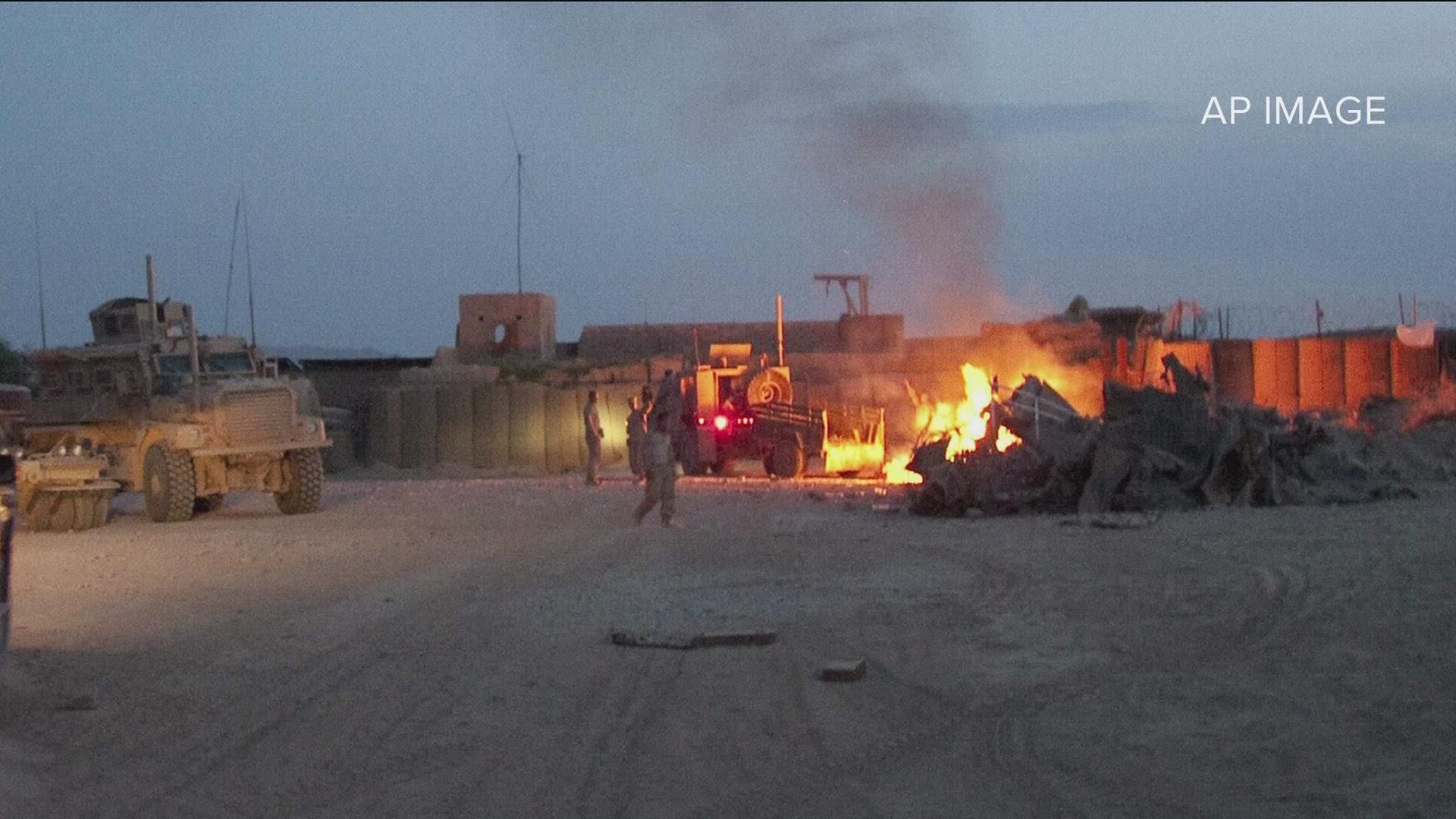PHOENIX — Millions of veterans exposed to toxic waste could soon get more access to health care and disability benefits.
The Senate on Tuesday approved a bill to enhance health care and disability benefits for veterans exposed to toxic burn pits while serving in Iraq and Afghanistan.
The PACT Act, or the Promise to Address Comprehensive Toxic bill, now goes to President Joe Biden's desk, and he says he is looking forward to signing it into law so those veterans "finally get the benefits and comprehensive health care they earned and deserve.”
A Valley veteran spoke with 12News, who said the passing of this bill is important to so many.
"We're not asking for a lot; we want to be taken care of," said Bradley Heck.
Heck served 32 years in the Army National Guard. He was sent on different missions and put on active duty three times, including a tour in Iraq in 2006.
He said when it came to disposing of trash, hazardous chemicals, and other waste there, items couldn't be buried because of the sand. So they would put it all in a hole in the ground, otherwise known as a burn pit.
"In our case, we had a burn pit that was probably, and I'm being conservative, probably the size of a football field," said Heck.
"One of the things we had to dispose of, we found an underground bunker that was an aviation fuel tank that had well over a million gallons of jet fuel. The problem was that we found the jet fuel had been contaminated with impurities. So there was literally a pipe that went from this bunker to the burn pit, and it was burning from when we lit it, and it was still burning when we left."
Heck came back to the States and started having serious health issues. He also found that he wasn't the only one.
"I basically had lost my taste," he said. "And so that, of course led into more investigations and found the reason I had lost my taste was my sinuses were full of polyps. And over the years and interfacing with other veterans, I'm starting to find out those of us, especially on bases with large burn pits, have ears, nose, and throat problems, respiratory issues, intestinal issues."
However, getting the necessary help from burn pit exposure has been difficult for millions. In most cases, patients are denied coverage.
"If I suspected a problem, I would have to prove I was at a base," Heck said. "I would have to prove I was within a certain distance of a burn pit, and of course, in my case, how do you go back to 2006 to documentation and witnesses and say 'yes, that's where I was?'"
This is where the PACT Act comes into play. The bi-partisan bill would allow veterans exposed to burn pits and other toxins to get treatment without proof. It's expected that once passed, about 3.5 million men and women will be able to get medical help.
"I have lost a cousin from Agent Orange," Heck said. "He was in Vietnam. I have a brother-in-law who's dealing with bladder cancer also because of Agent Orange. We've already lost a lot of people to cancer and very weird diseases because of what we've been exposed to, but hopefully, we can lose less."
"I'm really excited," Heck said. "Thanks to the PACT Act, my brothers and sisters are going to be taken care of now."
Up to Speed
Catch up on the latest news and stories on the 12News YouTube channel. Subscribe today.

